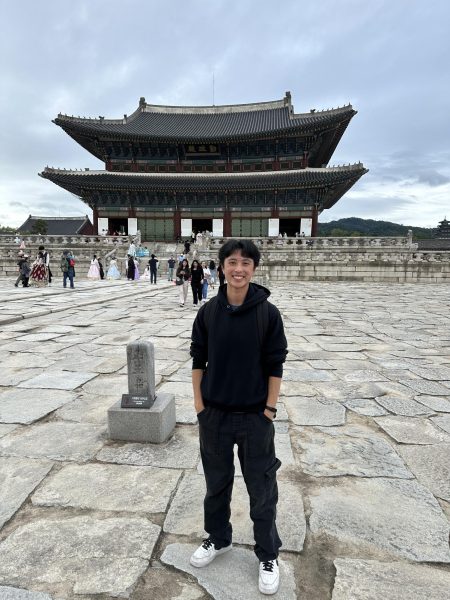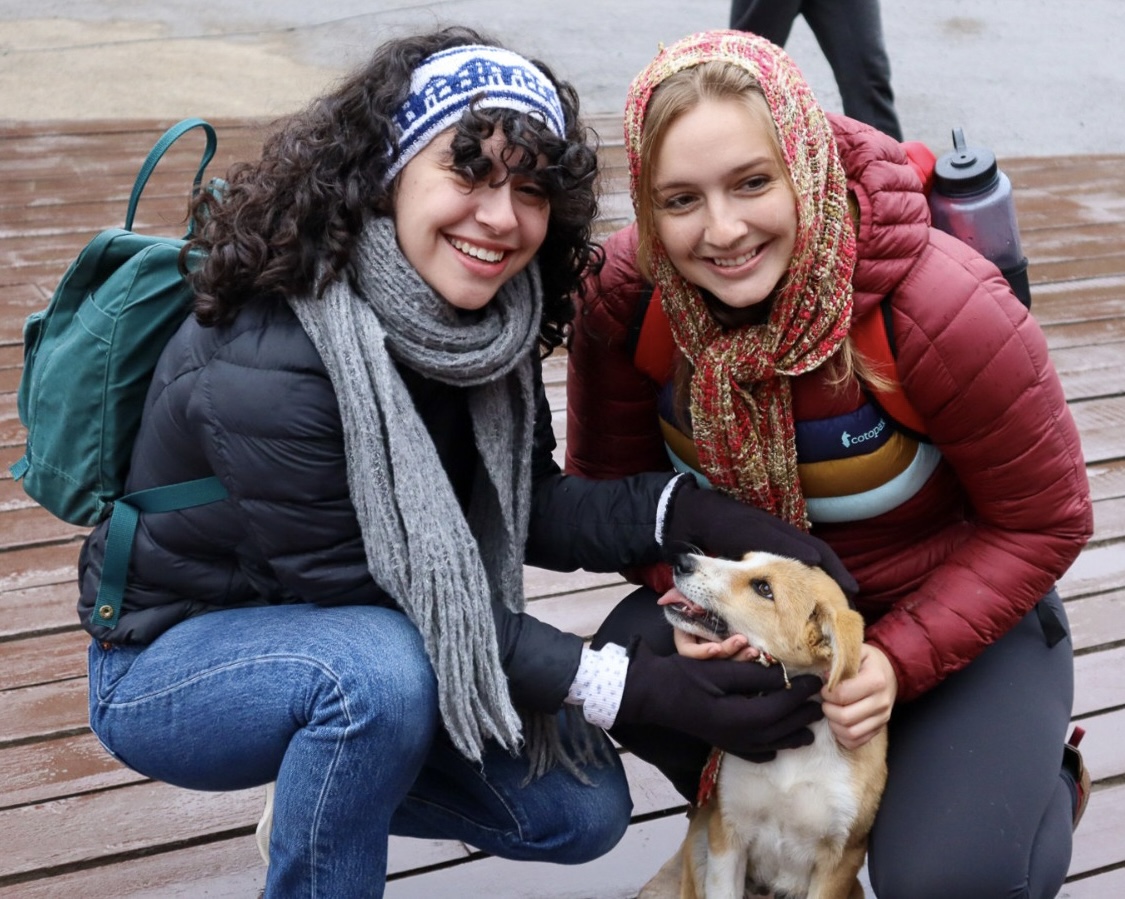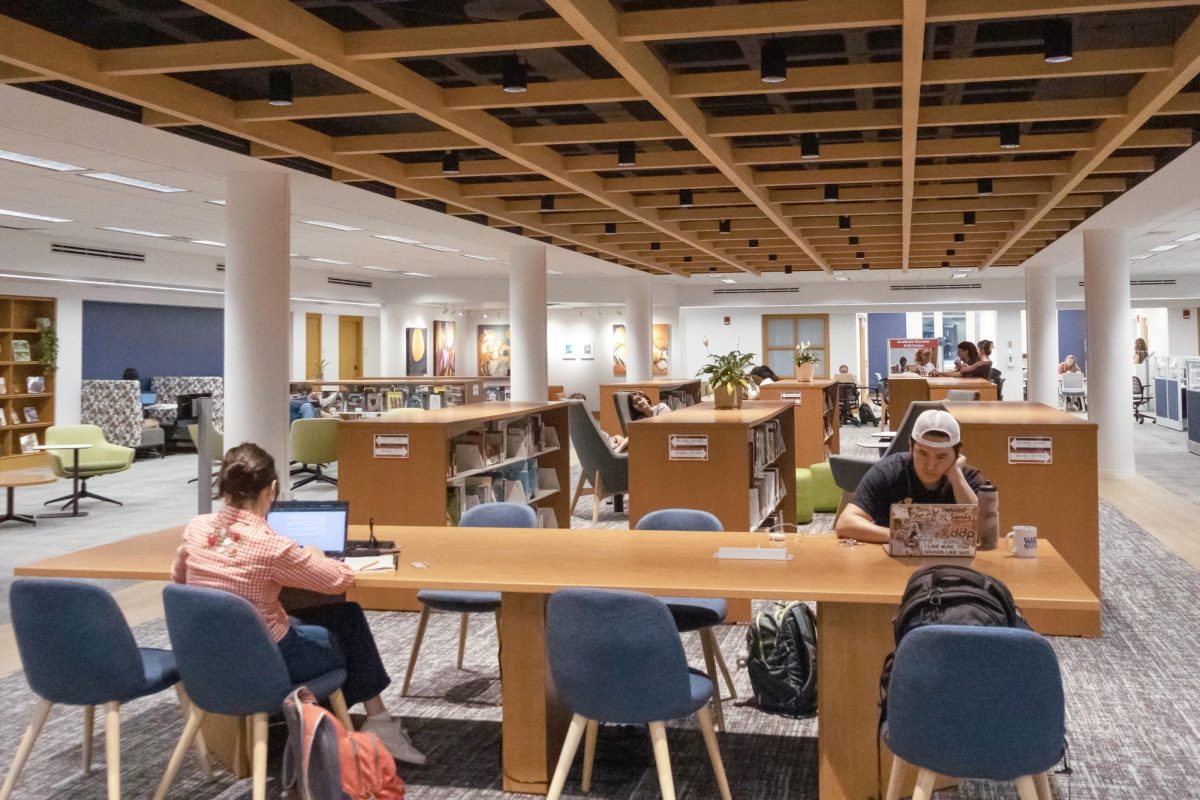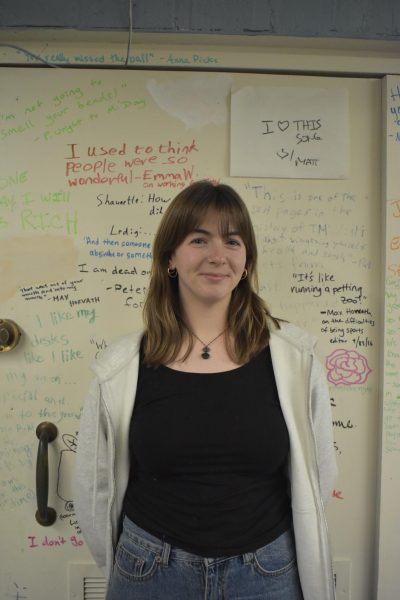Macalester College prides itself on its multiculturalism, much of which is facilitated by the Center for Study Away, which sends nearly 60 percent of Macalester students abroad. This past fall, 130 students studied away. As always, this group was diverse in terms of identity, academic interests and types of study away programs. Interim Director of Study Away Shanti Freitas, who’s been with Macalester for five years, shared that COVID-19 contributed to a decline in the number of students studying abroad, but that number is on the rise.
“[Pre-COVID] we normally [would] send about 150 to 170 students in the fall, so that’s pretty close to what the numbers [this year] are,” Freitas said. “We know for next year, there’s a much higher interest in [study away] so hopefully we’ll get on par with what the numbers were.”
Macalester compares their data to Open Doors, a collection of national study abroad data. Since the start of COVID-19, both national and Macalester numbers have shifted.
“There has been a shift towards more students wanting to go to western Europe than in the past,” Freitas said. “Historically, before COVID, Macalester sent more students outside of western Europe or to what are sometimes called ‘non-traditional locations,’ than the national average. It seems like after COVID, we’ve kind of come in line a little bit more with the national averages.”
Freitas and the Center for Study Away work to negate stereotypes about culture and academia worldwide, inspiring students to branch out from what they’ve heard or know from others, thinking about what works best for them and their goals.
“I think a lot of [these stereotypes] nationwide comes from this idea that western Europe is somehow safer or more easily accessible, which is not the case,” Freitas said. “I try to encourage students as they’re thinking about where to study away to think about locations that might be less comfortable or that might push [them] outside of [their] comfort zone, that’s really strong for academics and language and a variety of different things.”
One student who was pushed out of her comfort zone was Talia Ostacher ’25, who studied away in Kazakhstan through the American Councils for International Education. Her program was language intensive, involving hands-on speaking practice, as well as classroom instruction, in Russian.
“I definitely made good friends with everybody in the program, [we] got to know each other really well,” Ostacher said. “We also made such good friends with our language partners. I really enjoyed that aspect of the program. At the beginning it was a little bit awkward. All the language partners are volunteers, [so] you felt a little bit like an obligation. But then very soon afterward, everybody just became for real friends.”
On the other side of Asia, Skyler Deevy ’25 attended Yonsei University in Seoul, South Korea. He was able to travel frequently, visiting other parts of the country and even the Philippines during a strategically planned four-day weekend.
“There’s lots of really fun things to do,” Deevy said. “Korea is really big on cafes, and they also have a pretty big nightlife, [but] the most culture I learned was in my classes, where things are explored from a different worldview. It would have been nice to be there for a year to really get that whole full experience.”
Evan Burns ’25 direct-enrolled at the University of Otago in Dunedin, New Zealand, appreciating a program that allowed him time to explore his interests in a new setting.
“[My] highlights include making new friends, learning how to mountain bike, hiking, seeing the three rarest species of penguins in the world and improving my landscape photography skills,” Burns wrote in an email to The Mac Weekly.
Similarly, the aspect Ostacher misses the most is the excitement of being in a new place, finding joy in making the foreign familiar.
“After passing the exam, a lot of the time I would just pick a direction and start walking,” Ostacher said. “I would just walk because there was always so much to explore[…]. It’s kind of humbling, things that were completely mundane. [I just thought] ‘this is so cool.’”
Fátima Ortega Barba ’25, who studied abroad in Santiago, Chile, reflected on some of the limitations of her study abroad experience.
“I am a heritage speaker, but had to study abroad due to my Latin America Studies major,” she said. “Most of the available programs are research-based or language-based, which didn’t really align with what I wanted or was looking for.”
Ortega Barba wants to ensure other students understand there are obstacles not always advertised in study away, and it’s important to acknowledge that experiences vary.
“I always felt the pressure to do something just because I was abroad, but my financial situation didn’t allow for that, and it made me feel isolated abroad as most people in my program would constantly be on trips,” Ortega Barba said. “Studying away is expensive, and I think more people should know that.”
Freitas confirmed this reality as common amongst students studying abroad and that as a department, the Center for Study Away tries to remind students of potential complications.
“[We] try to push back on the narrative that study away is this amazing, perfect, wonderful experience all the time,” Freitas said. “It’s challenging when you get there [and] it’s challenging to come back. And so [we need] to normalize that there are ups and downs — it’s about the learning experience.”
Deevy encouraged students studying away to fully immerse themselves in their country.

“Try to explore the city in your country and learn about their culture and habits, and don’t forget to be respectful. Learning a language is also really nice; I learned how to read Korean there because I never lived in Korea before coming, but knowing a bit more was really helpful in navigating the city. And it allowed me to at least say hello to the locals as well—they appreciate it.”
When appreciated as a whole, with both the goods and the bads, the study away experience becomes part of the Macalester experience.
“It helps you think about how you act, how you interact with people, how [it’s] not just what you are extracting and learning, but also how you contribute to people that you meet, the host community or classmates or organizations that you worked with,” Freitas said. “Try and make [study away] more reciprocal and help students think about their larger place in the world.”












